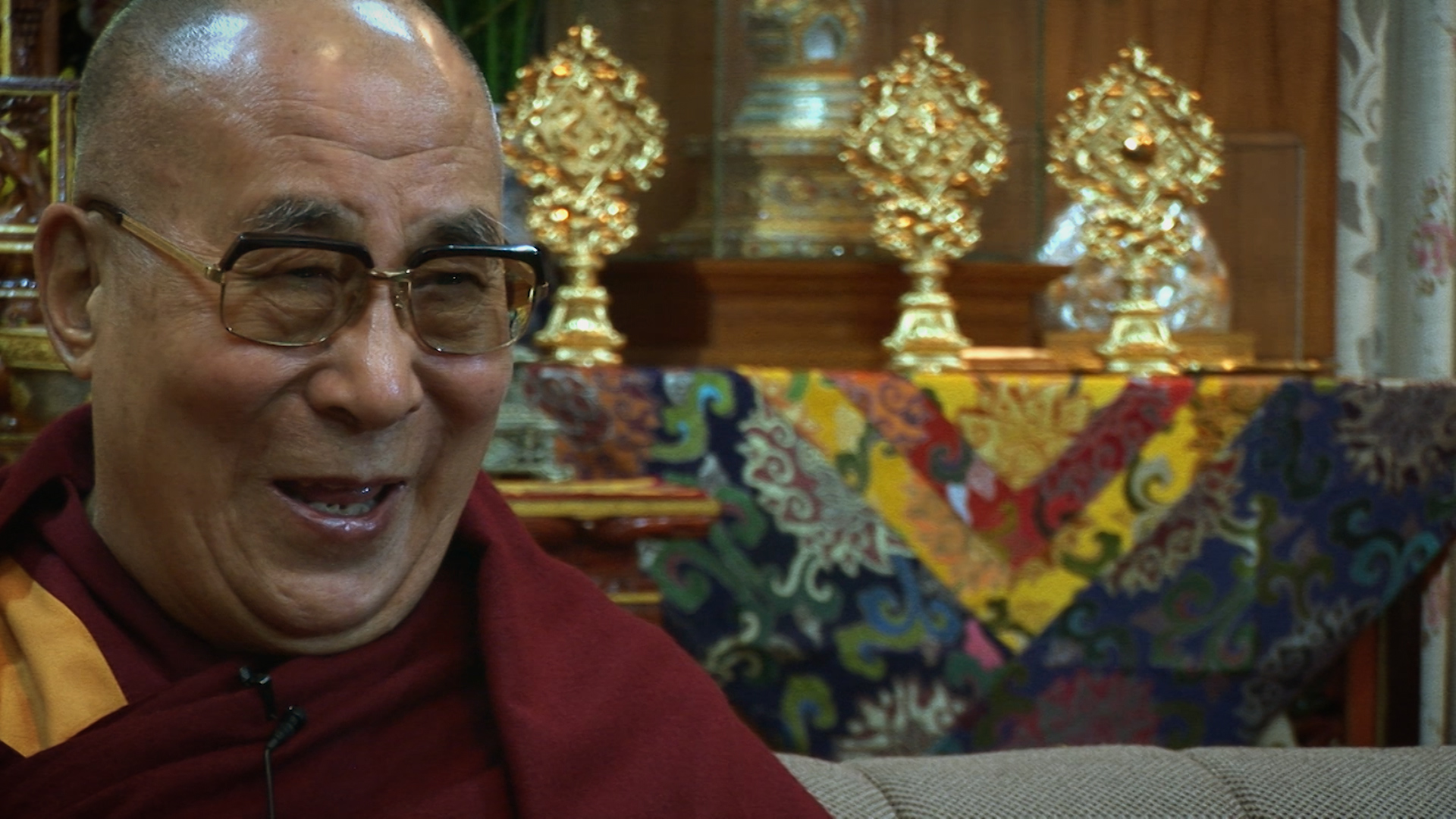Filmmakers in the Spotlight: Dawn Engle.
Recently, The Dalai Lama: Scientist won Platinum Award in Pacific
Screen Awards. Here we have our exclusive interview with Dawn Engle
the award-winning director of the film The Dalai Lama: Scientist.
Q: Tell us how "The Dalai Lama: Scientist" evolved.
The Dalai Lama-Scientist is a documentary that contains a
life-changing message and veritable impact; it changes your
perspective and offers a renewed sense of hope, purpose and so much
more. I have always wanted to meet the Dalai Lama�now more so than
ever�given his amazing qualities and meaningful teachings. I believe
he has contributed a great deal to humanity, and continues to do so.
He inspires me to aim high and contribute all that I can, and I
imagine that that�s something he inspires in anyone who watches this
film.
The documentary also provides a more behind-the-scenes look as to
who the Dalai Lama is as a fellow human being, covering his
interests in the fields of science and modern technology. His
interest in these subjects is prominently captured throughout the
film, especially where it concerns the scientific dialogues that
have taken place for decades.
Q: Did you have any unusual difficulties during filming?
Bringing this marvelous film to life was no easy feat, however. It
was six years ago that we sat with the Dalai Lama and his staff and
said okay, what hasn�t been captured? There�s a lot of movies about
the Dalai Lama, but what hasn�t been captured? And what is important
to capture? And it was his work in the field of science.
Because the film has so much footage, graphics, animation, science
and technology, it took a while to put together.
It was monumental what we had to do to make this film. We had to
bring in advisors like Francisco Varela, the scientist who passed
away, who was the Dalai Lama�s dear friend. His wife became one of
our advisors. Several of the scientists in the film became advisors.
We had on the Buddhist side, others who are close to His Holiness
were advisors, so we got a lot of people helping us to get it right.
Q: Will winning awards help promote the documentary? How so?
Yes. We have won 47 awards so far, and it's created quite a buzz!
Q: How much money did it cost?
$900,000
Q: How did you finance that?
Grants and donations from private individuals.
Q: Where were the locations?
India, Tibet, USA
Q: Any bites yet from distributors?
Yes, we have distribution through Gravitas Ventures.
Q: What has the feedback been so far?
There's been a fantastic response worldwide for our film so far.
|
Q: Tell us about your own background. Where you
were born? Where did you study film? What was your first movie? What
was your previous job? Are you a full-time filmmaker?
I am an activist, filmmaker and co-founder of The PeaceJam
Foundation, As co-founder of The PeaceJam Foundation, I also managed
to assemble 14-Nobel Peace Prize winning Laureates, including the
Dalai Lama, to serve on foundation�s Board of Directors in order to
unite upon a mission to develop young leaders and engage adults and
youth in their local and global communities. I co-authored the book,
"PEACEJAM: A Billion Simple Acts of Peace", which was published by
Penguin in 2008, and directed the award-winning documentary films,
Rigoberta Menchu: Daughter of the Maya, Desmond Tutu: Children of
the Light, Adolfo Perez Esquivel: Rivers of Hope, Oscar Arias:
Without a Shot Fired, Betty Williams: Contagious Courage,in addition
to this latest work about the Dalai Lama.
My Dad worked for Ford Motor company and I�m originally from
Detroit. I was born at Henry Ford Hospital and attended Western
Michigan University and ended up being selected to represent the
State of Michigan after I graduated from college in 1976 for a
Bicentennial year semester in Washington, DC, during which I met
Senator Griffin from Michigan. He offered me a paid internship so I
stayed for three more months and ended up working for 13 years on
Capitol Hill.
One day somebody started talking to me about the situation in Tibet
and how the Chinese were forcing all these Tibetan Buddhists out of
their homeland, so they were forming an International Relief
Campaign for Tibet because of all the horrible human rights
violations going on.
I was one of the first volunteers and met the Dalai Lama 30 years
ago. I remember at the time I was sharing a bathroom with Richard
Gere and the whole pilgrimage there changed my life. I took away
what I had learned in Washington, DC about being a leader and tried
to use it for something good while I was in Tibet. Eventually I
moved to Colorado, raised two small children, and started the
PeaceJam Foundation as a fundraising vehicle 25 years ago. The Dalai
Lama was the first Nobel Peace Prize winner to serve on our Board
and now we have 13 of them listed.
Q: Are you pleased with the overall outcome?
Yes. We are thrilled!
Q: How long did it take to complete the documentary?
6 years
Q: How do you feel to have won the Platinum Award in Pacific Screen
Awards?
We're incredibly honored to have won the Platinum Award in Pacific
Screen Awards. It means so much to us as filmmakers to have the
support of film festivals around the world. The film has now been
seen by people in 48 different countries worldwide. And this award
will help us to reach an even greater potential audience.
Q: Does this film send the message you intended?
Yes.
Q: Are you working on any new projects?
Yes, of course! Here is a trailer: https://player.vimeo.com/video/405032152
Pacific Screen Awards is a film festival looking for skillfully
crafted films with touching, strong stories; films and documentary
films with good taste in editing wise and composition. The Festival
also accepts submission from various film categories. Making a film
is a team work, and each department deserved recognition for their
artistic taste, for their hard work, for their vision, for their
expertise, for their skill, and for their passion.
|
|


